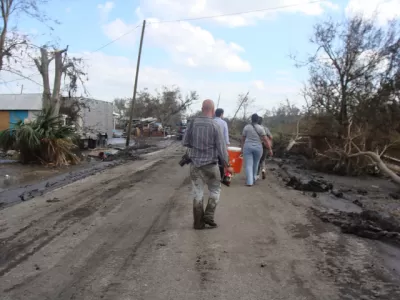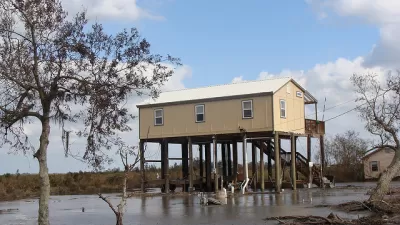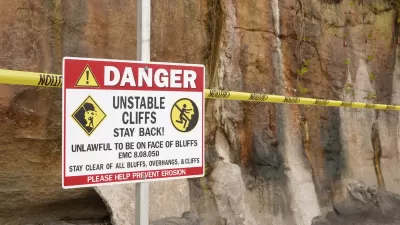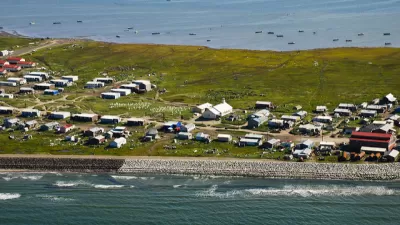A change of nomenclature shifts focus to the self-determination of residents relocating from the coast of Louisiana as rising seas inundate their homes.

Matthew D. Sanders writes of Isle de Jean Charles, a remote island community along the furthest stretches of southeastern Terrebonne Parish in Louisiana:
This is the setting of the first federally funded, climate-change induced community resettlement project—a $48.3 million effort to create a model for managed retreat at a scale not previously attempted. The Island is disappearing and this federal investment will ultimately determine whether the Island community disappears along with it, or whether it can experience a rebirth in a higher, drier, upland location.
A key message portrayed in this article, compared to previous media coverage of the Isle de Jean Charles resettlement project, addresses a question of nomenclature. Instead of "climate change refugees," planners working on the project prefer the term "climate change pioneers."
"They’re not refugees," writes Sanders. "They are pioneers who have willingly volunteered to take a proactive approach in the face of the sobering reality that the Island—their Island—will not withstand the impacts of future storms yet to come." That pioneering spirit is evident in the work residents are putting into the project, "collaborating with a project team of state officials, planners, engineers and architects to plan the look, feel, function and composition of the new community, but also to outline an appropriate and dignified 'long goodbye' for their Island."
FULL STORY: Don’t Label Them Climate Change Refugees, Says a Louisiana Planner, They’re Pioneers

Alabama: Trump Terminates Settlements for Black Communities Harmed By Raw Sewage
Trump deemed the landmark civil rights agreement “illegal DEI and environmental justice policy.”

Planetizen Federal Action Tracker
A weekly monitor of how Trump’s orders and actions are impacting planners and planning in America.

The 120 Year Old Tiny Home Villages That Sheltered San Francisco’s Earthquake Refugees
More than a century ago, San Francisco mobilized to house thousands of residents displaced by the 1906 earthquake. Could their strategy offer a model for the present?

In Both Crashes and Crime, Public Transportation is Far Safer than Driving
Contrary to popular assumptions, public transportation has far lower crash and crime rates than automobile travel. For safer communities, improve and encourage transit travel.

Report: Zoning Reforms Should Complement Nashville’s Ambitious Transit Plan
Without reform, restrictive zoning codes will limit the impact of the city’s planned transit expansion and could exclude some of the residents who depend on transit the most.

Judge Orders Release of Frozen IRA, IIJA Funding
The decision is a victory for environmental groups who charged that freezing funds for critical infrastructure and disaster response programs caused “real and irreparable harm” to communities.
Urban Design for Planners 1: Software Tools
This six-course series explores essential urban design concepts using open source software and equips planners with the tools they need to participate fully in the urban design process.
Planning for Universal Design
Learn the tools for implementing Universal Design in planning regulations.
Clanton & Associates, Inc.
Jessamine County Fiscal Court
Institute for Housing and Urban Development Studies (IHS)
City of Grandview
Harvard GSD Executive Education
Toledo-Lucas County Plan Commissions
Salt Lake City
NYU Wagner Graduate School of Public Service





























